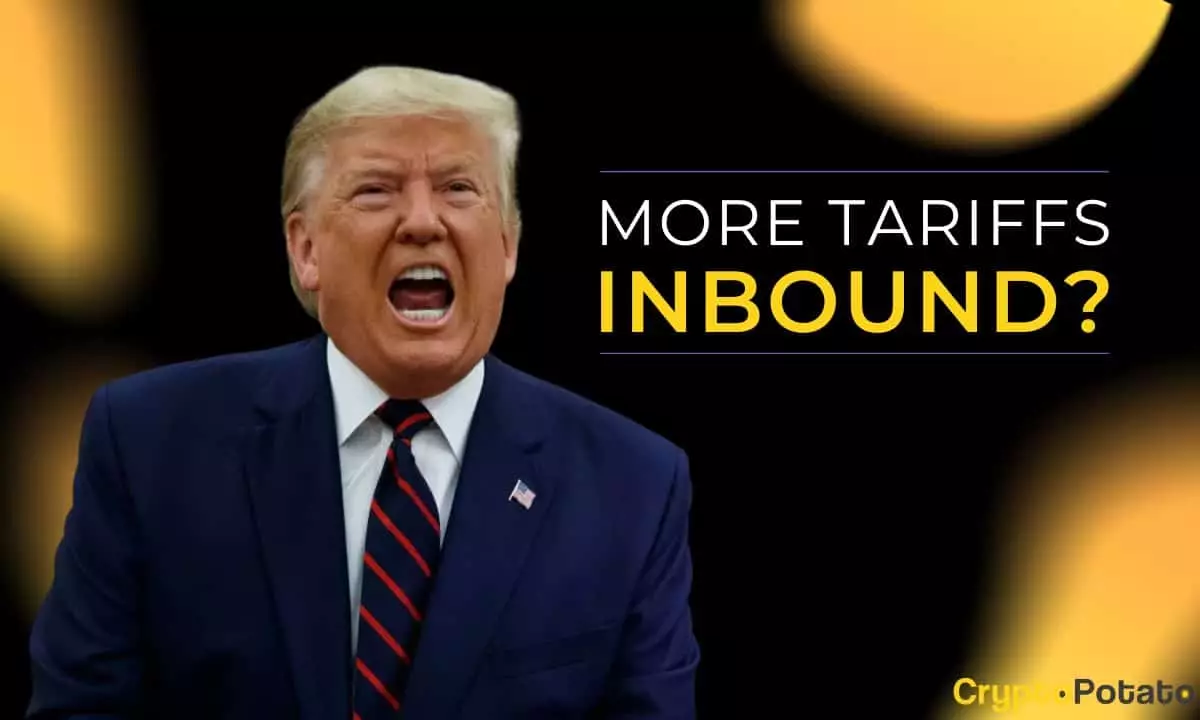In a bold announcement labeled as “Liberation Day,” President Donald Trump escalated his trade strategy with new tariffs imposed on nearly every country, igniting fears of an extensive international trade war. These tariffs, with a substantial baseline of 10%, coupled with staggering rates targeted at specific nations—34% for China, 46% for Vietnam, and 24% for Japan—have rattled the foundations of global markets. The rhetoric surrounding these moves suggests an insistence on American dominance in trade, yet it raises critical questions about the sustainability and repercussions of such aggressive policies.
As the world’s economies brace for impact, a wave of panic has swept through stock markets, resulting in unprecedented losses estimated at over $5 trillion during a turbulent week. The reaction from investors, some of whom hold significant faith in the market’s resilience, indicates a growing distrust in stability. In this context, it appears that as tariffs rise, so does uncertainty, with potential repercussions beyond mere economic downturns—manifesting as diplomatic frictions that may sag into deeper global conflicts.
Repercussions on the Global Stage: The Ripple Effect
The immediate blowback from Trump’s unilateral trade strategies has been swift. China has retaliated with its own sweeping tariffs while restricting the export of vital minerals, essentially firing back at the U.S. with significant consequences that threaten to destabilize established trade relations. This isn’t just a back-and-forth tussle; it’s economic brinksmanship that undermines decades of intricate trade cooperation. The resistance seen from other nations, who cautiously approach the situation with hopes for negotiation, reflects a precarious balance—fearing that overreaction to tariffs might escalate tensions to a boiling point.
Maroš Šefčović, the European Union’s trade commissioner, shared insights into the diplomatic friction, labeling discussions with U.S. representatives as “frank.” The EU, while asserting its commitment to negotiations, is prepared to defend its interests against unilateral actions that threaten a rules-based trade environment. This political chess game only exacerbates the uncertainty looming over global markets, further deepening the economic abyss that seems to be forming.
Market Sentiment: The Southern Cascade
Investors’ sentiments are in disarray. Major indices like the S&P 500 and Dow Jones have plunged, marking these losses reminiscent of catastrophic market dips seen during the COVID-19 pandemic. Tech giants—once seen as the bulwarks of resilience—are experiencing impressive declines, casting doubt on their previous invulnerability. The pervasive sentiment reflects an underlying fear that the U.S. economy, which has largely propelled growth, may now be the catalyst for a systemic crisis, triggering a retraction in consumer confidence both domestically and abroad.
Yet there’s a glimmer of hope lurking within the unpredictable world of cryptocurrency. Amid the chaos in traditional markets, Bitcoin appears to be charting a course against the current. While it registered a minor decrease of 0.3% within that tumultuous week, analysts are noticing a critical divergence from other assets. This unusual behavior might hint at a transformative moment for cryptocurrencies, setting the stage for a potential shift whereby Bitcoin emerges as a refuge during economic turmoil.
Analyzing the Long-Term Effects: Are We Preparing for More Than Just Financial Strain?
The overarching implications of these tariffs extend far beyond immediate financial losses; they may serve as inflection points for long-standing economic interpretations and policies. Rethinking trade practices could foster a dual-edged sword where governments prioritize self-interest over global cooperation, catalyzing a new era of protectionism that could irrevocably change global economics.
If seasoned observers of market dynamics are correct, this represents just the beginning of a tumultuous period characterized by heightened uncertainty, rising costs, and the risk of recession. The expectation that tariffs can equilibrate trade imbalances might be overly simplistic. As nations react defensively, the implications for technological cooperation, environmental policies, and human rights could face dire consequences amid a burgeoning institutional conflict alongside economic fallout.
As individuals navigate this economic landscape, the challenge will be discerning the real-world impacts of political decisions that affect the flow of goods, investments, and trust among nations. In this intricate web of geopolitics and financial intricacies, safeguarding economic interests must come with an equal measure of diplomatic intelligence and foresight.

